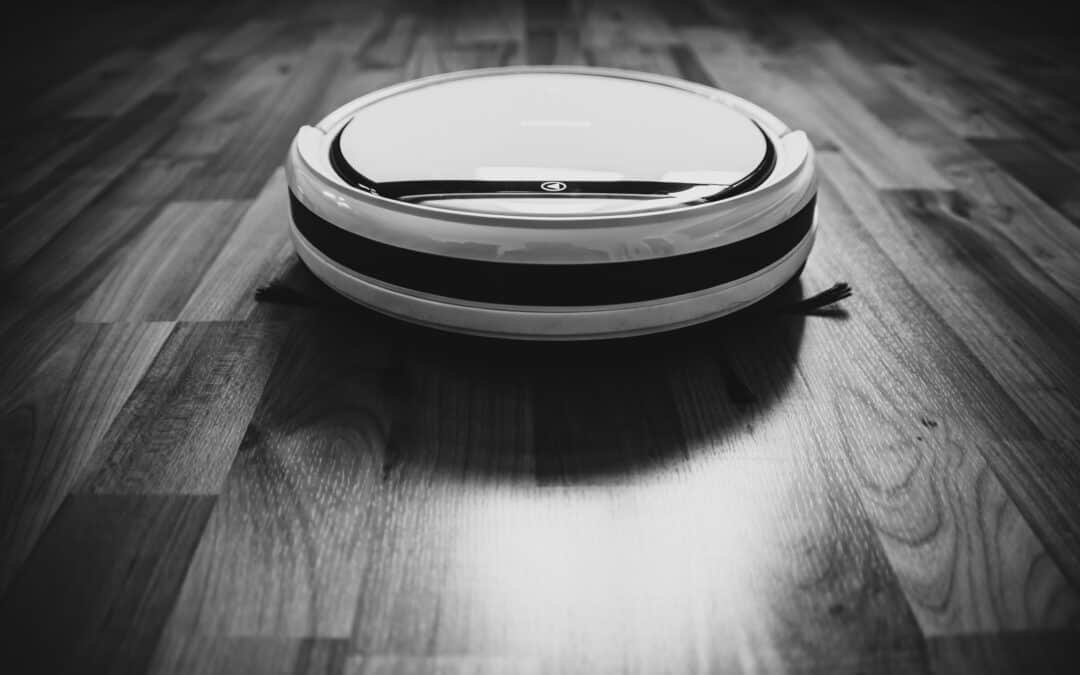How Well Do Robot Vacuums Work on Different Floor Types?
In today’s post about floor maintenance, we are going to discuss something that might be considered slightly adjacent to typical floor care. We will be discussing how well robot vacuums work for different floor types, so you can make an informed decision as to whether a robot vacuum is the right decision for your floors and your home.
Before we dive into the different types of floors and how they perform with robot vacuums, it’s important to set an honest set of expectations. According to Choice, a review generating company in Australia, most customers are generally happy with their robot vacuums; robot vacuums can get some hard-to-reach spots such as under the furniture, many come with scheduling features which allows you to schedule cleaning as frequently and conveniently as possible, and they reduce the cleaning burden on customers.
However, most Choice reviews also agree that a robot vacuum cannot entirely replace the need for a traditional vacuum. This is typically because the motors in these small machines are not powerful enough to pick up larger things like longer pieces of pet hair, they aren’t able to reach the depths of corners, and as we will dive into a bit further, they also aren’t great for all floor types and many homes have multiple types of flooring in them.
Robot Vacuums on Wood Floors and Manufactured Wood Floors
As you might expect, wood floors are one of the easiest types of floors for robot vacuums to perform on. The flat, smooth, even surface of hardwood floors makes them generally easy to clean because there aren’t deep grooves, cracks, or grout for dirt to get stuck in. This also makes wood floors and manufactured wood floor ideal for robot vacuums.
However, many robot vacuums also have a mop attachment for wet cleaning floors. Some robot vacuums/mops say that they are perfectly safe for hardwood floors, and other robot vacuums only recommend using the mop attachment on hardwood floors that have a protective sealant on top. We recommend checking with the manufacturer of the specific vacuum in question, or erring on the safe side, and avoid the mop attachment altogether.
Robot Vacuums on Vinyl Floors
As a quick refresher, vinyl planks are purely synthetic planks made of PVC, which is a type of plastic. Vinyl floors can be sold in sheets, and in planks, which are easy to install and waterproof! Vinyl floors are cherished for their durability and cost effectiveness. As you can guess, this all makes them a great candidate for robot vacuums, and their mop attachments. To be safe, check with the manufacturer’s recommendations for vinyl floors because some vacuums come with multiple rotating brushes that might be better for different floor types.
Robot Vacuums on Tile Floors
Almost all robot vacuums are reported to work well on tile floors, and why shouldn’t they? Tile pieces are hard, even surfaces that are durable. Many robot vacuums also report they their mop attachments were specifically made with tile floors in mind, making tile the ideal flooring type for robot vacuums and mop attachments.
Robot Vacuums on Carpet
At this point, we reach a discussion point that is commonly disagreed upon between consumer reports, and manufacturers. While many manufacturers of robot vacuums insist that their products are great for carpeted floors, many customers report that the effectiveness of robot vacuums on carpet floors is inconsistent. According to Choice, the average effectiveness of robot vacuums on carpet floors is only 37%. However, some consumer reports indicate that the effectiveness of robot vacuums on carpet can be as high as 60% and as low as 8%.
This indicates to us that not all robot vacuums are created equal, and that some are likely specifically designed to work better on carpet, while others may be a poor choice for carpet. All this considered, even the best robot vacuums only report at 60% effectiveness on carpeted floors, which is relatively low when compared to 87% average effectiveness for wood floors. Obviously, a floor that is 60% cleaner is better than nothing, but it might be best to keep realistic expectations about robot vacuums on carpet.
We hope that by reading this post, you know a little bit more about floor maintenance, and now have the information you need to determine whether a robot vacuum is a good choice for your home. If you have any questions about flooring, and need guidance on finding the right flooring for your home, we are here to help! Give Northern Colorado Carpets a call at (970) 226-6800


Recent Comments